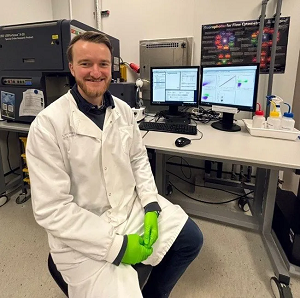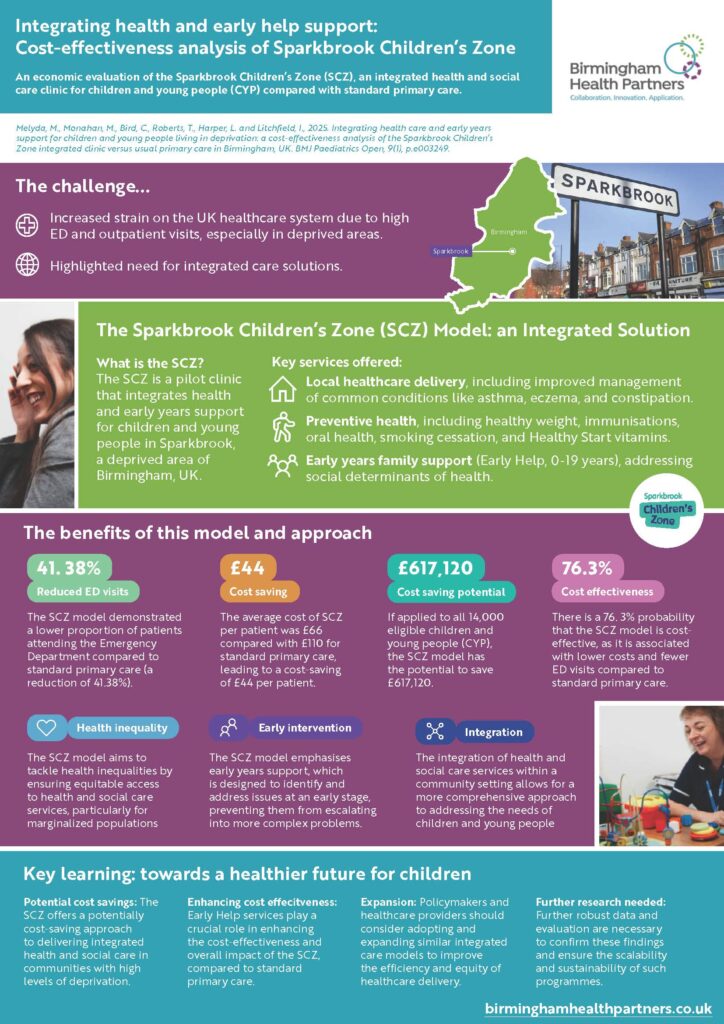BHP People – “one team, one goal”
Carlos Chan, Research Development Coordinator at the Royal Orthopaedic Hospital, is the Trust’s first recipient of the BHP People recognition award.
We spoke to Carlos about his rapid progression from administrator to integral member of the ROH’s growing research team.
Q: Can you briefly run us through your career so far and how you came to work at ROH?
CC: My career began at a multinational nutrition science company in Hong Kong, where I worked as a brand manager and was heavily involved in new product development and commercial research. When I relocated to the UK I was keen to pursue a career in research, as it aligned closely with my personal values – especially the goal of contributing to better health for future generations. That’s when I had the opportunity to join the ROH Research Team.
I initially started as a band 2 administrator, which gave me invaluable insight into how the Trust operates and allowed me to build strong relationships across departments. My curiosity and desire to contribute more deeply led to a promotion to Data Manager where, with the support of a fantastic team, we significantly improved study delivery – streamlining referrals and communication for the ICONIC osteosarcoma study and hitting recruitment targets for the RADICAL pain management trial. We also achieved the highest response rate in the West Midlands for the 2023 NIHR Participant in Research Experience Survey (PRES).
I’m now working as a Research Development Coordinator, where I draw on my project management and liaison skills. Thanks to the collaborative culture and my earlier experience in delivery, we’ve streamlined processes and reduced setup times. It’s been a journey full of support and inclusion, and I’m excited for what’s ahead!
Q: In your current role, what are some of the tasks and duties you’re involved in most frequently?
CC: I’m responsible for coordinating research projects from the feasibility stage through to activation, and then managing amendments throughout the study’s life cycle.
I work closely with internal and external partners, including trial units, Principal Investigators, clinicians, research nurses, data managers, and pharmacy technicians. I also liaise with national bodies like the NIHR, HRA, and HSCNI to resolve governance queries.
My duties include performing local governance checks, securing cost approvals, managing risk assessments, and finalising contracts. This ensures that our site is ready and capable of opening each study.
Q: Have you experienced any particular challenges in your role, and how have you overcome them?
CC: Like any collaborative environment, we do encounter challenges – particularly when coordinating across departments or working through complex processes. When this happens, I always return to the principle of “one team, one goal.” I try to clearly identify our shared objective and assess what’s realistically achievable based on the resources available. We then openly discuss the pros and cons of different approaches. This collaborative decision-making ensures we move forward with the most effective solution, even if it’s not perfect for everyone involved.
Q: You’ve played a major role in improving data capture and reducing study set-up times – can you tell us more about the changes you introduced and the impact they’ve had?
CC: When I stepped into my current role, I noticed an opportunity to improve our study set-up tracking. I integrated our existing local governance processes into a custom-programmed Gantt chart which allows us to track every milestone and subtask, assign responsibilities, and monitor lead times. It has dramatically improved our visibility into each study’s progress. Additionally, we created a performance dashboard using PowerBI. This automation reduced the time required for reporting from several hours to just a few minutes. These tools have not only streamlined workflows but also enabled us to spot delays early and proactively address them – leading to faster, more efficient study setups.
Q: Can you tell us about some of the studies (past or present) that you’ve found particularly rewarding to be part of?
CC: One standout project is the ICONIC study, a UK-wide osteosarcoma research initiative which collects clinical and biological data to enhance our understanding of this rare cancer. As a surgical site without chemotherapy services, we had many referrals and patient transfers, which added complexity. Maintaining data integrity and a positive patient experience across sites was a challenge we tackled through strong collaboration with the trial unit and teams across the UK. The study is now at the end of recruitment, and I’m incredibly proud of our contribution.
More recently, we launched the FORENSIC trial, sponsored by the University of Oxford and led locally by Professor Adrian Gardner. It investigates whether lumbar fusion surgery is more effective than conservative care for persistent lower back pain. ROH was the first site to open and recruit for this trial, and I’m thrilled to see its early success.
Q: Looking ahead, what are your goals for your role in research development, and what areas of improvement or innovation are you most excited about?
CC: I hope to gain experience with a wider variety of studies, including device and pharmaceutical trials. One of the best things about working in research and development is the constant opportunity to learn and take on new challenges.
I also want to support the setup of more studies at ROH, enabling more clinicians and patients to engage in cutting-edge research that leads to better treatments and outcomes.
Above all, I hope every participant enjoys their research experience and feels encouraged to share it with others. By building a positive research culture, we can collectively advance healthcare and improve lives.



 Dr Joseph Sturman is a a Kidney Research UK (KRUK) Clinical PhD Fellow investigating how Chronic Kidney Disease (CKD) leads to altered immunometabolism and increased susceptibility to infectious diseases. Ultimately, his aim is to understand how we can modulate immunometabolism to improve the control of infectious diseases in this vulnerable population, using Mycobacterium tuberculosis (Mtb) as a model pathogen. His PhD funding application to KRUK was successful thanks to the excellent supervisory support and fundamental preliminary data he collected during his
Dr Joseph Sturman is a a Kidney Research UK (KRUK) Clinical PhD Fellow investigating how Chronic Kidney Disease (CKD) leads to altered immunometabolism and increased susceptibility to infectious diseases. Ultimately, his aim is to understand how we can modulate immunometabolism to improve the control of infectious diseases in this vulnerable population, using Mycobacterium tuberculosis (Mtb) as a model pathogen. His PhD funding application to KRUK was successful thanks to the excellent supervisory support and fundamental preliminary data he collected during his  Dr Mark Openshaw is a Consultant Medical Oncologist at BHP founding member University Hospitals Birmingham NHS Foundation Trust. His
Dr Mark Openshaw is a Consultant Medical Oncologist at BHP founding member University Hospitals Birmingham NHS Foundation Trust. His 
